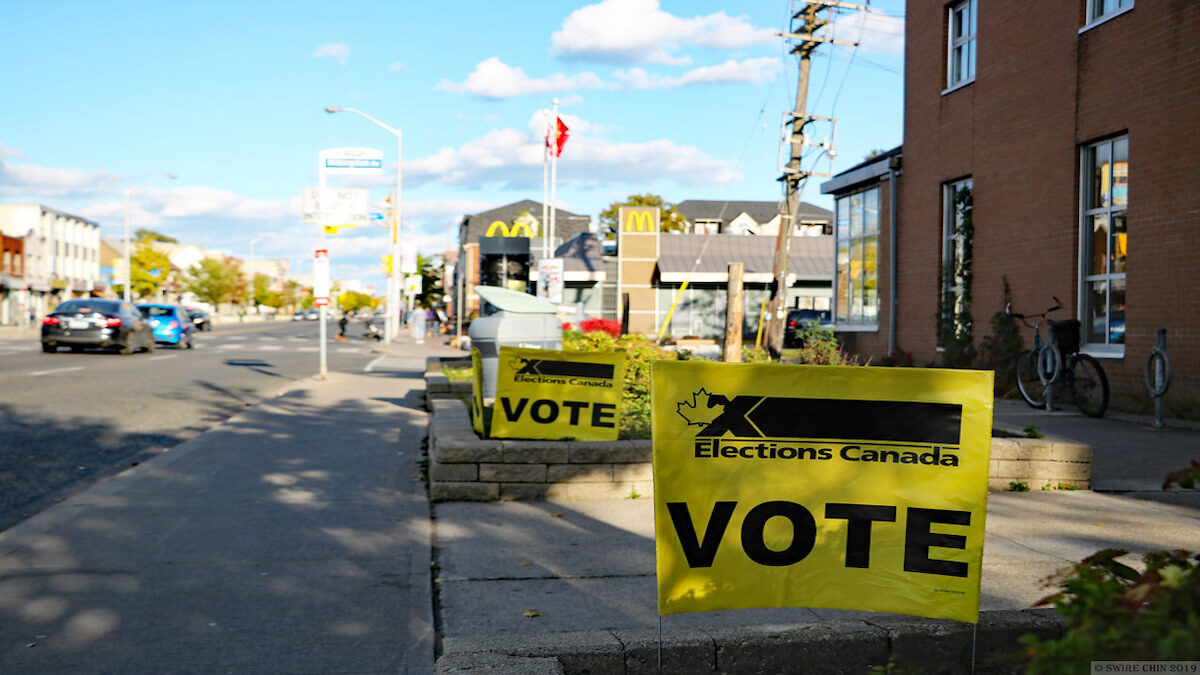A recent Angus Reid Institute survey has found that two in three Canadians believe China attempted to interfere in the 2021 and 2019 federal elections.
Around 65 per cent of respondents agreed with a statement claiming the election was “definitely” or “probably” tampered with by the Chinese government – with 32 per cent believing the interference was definite and 33 per cent believing it was probable.
Canadians appear to have been paying attention to media reports about election meddling by Beijing including a Globe and Mail’s article that included leaked information about Chinese influence activities in the 2021 election in a report by the Canadian Security Intelligence Service, or CSIS.
The CSIS documents showed the Chinese government worked to ensure a Liberal minority government and that specific candidates from the federal Conservative party were defeated.
The sentiment revealed in the survey along with intense media and political pressure has finally forced Prime Minister Justin Trudeau to act.
Instead of calling a public inquiry immediately, he announced the appointment of a “special rapporteur” charged with overseeing investigations into alleged Chinese interference. The rapporteur, once named, will decide whether a public inquiry is needed. On Tuesday, Trudeau asked the opposition to provide names to fill the post.
McGill University Prof. Benjamin Fung, who holds a Canada Research Chair in Data Mining for Cybersecurity, says the fact that the Chinese Communist Party interfered with Canadian elections is unsurprising.
“I think that the CSIS report has confirmed what we know already. The report put in the names and just reconfirmed what we have known,” Fung said.
The greatest threat he saw from the Chinese government’s interference in the election was disinformation. Fung said the Chinese government has a reputation for creating false facts, and the spread of these untrue facts, from the Chinese government, is common in some Chinese communities.
“In the Chinese media in Canada, you can easily find some articles trying to attack some candidates. The information in the article would say the candidates are racist,” Fung said, adding, “they said one of the candidates of the Conservatives proposed an act that would be against Chinese people in Canada – that’s just not true.”
Fung said the disinformation and propaganda helps paint a specific narrative of the “ideal” Chinese-Canadian.
“This (disinformation) is a common strategy used by the Chinese Communist Party they always try to say if you go against the Chinese government, or if you go against the Chinese Communist Party, then you’re going against the whole Chinese community. They try to put an equal sign between the Communist Party and Chinese people,” he explained.
In addition to the pending appointment of a special rapporteur to investigate allegations, A Commons committee is investigating reports of Chinese meddling.
The committee heard recently from members of the Security and Intelligence Threats to Elections Task Force and CSIS.
As Brandon Champagne, a spokesperson for CSIS explained, the specifics of this investigation are highly classified and will not be discussed publicly until it has concluded.
“As Canada’s civilian intelligence service, we collect information that, if publicly disclosed, would be strategically invaluable in the hands of Canada’s adversaries. Not only would public disclosure of classified information compromise investigations and techniques, it would also put Canada’s national security at risk,” Champagne explained.
A spokesperson from the Chinese Embassy in Ottawa refuted all the allegations against the Chinese government.
In a statement to Capital Current, the spokesperson said, “China has always been firmly against any attempts to interfere in other countries’ domestic affairs. We are not interested in meddling with Canada’s internal affairs, nor have we ever tried to do so.”
As well as the other reviews, the commissioner of Canada Elections has also begun a review into allegations of foreign interference in the last two federal election campaigns after receiving a flood of complaints.




